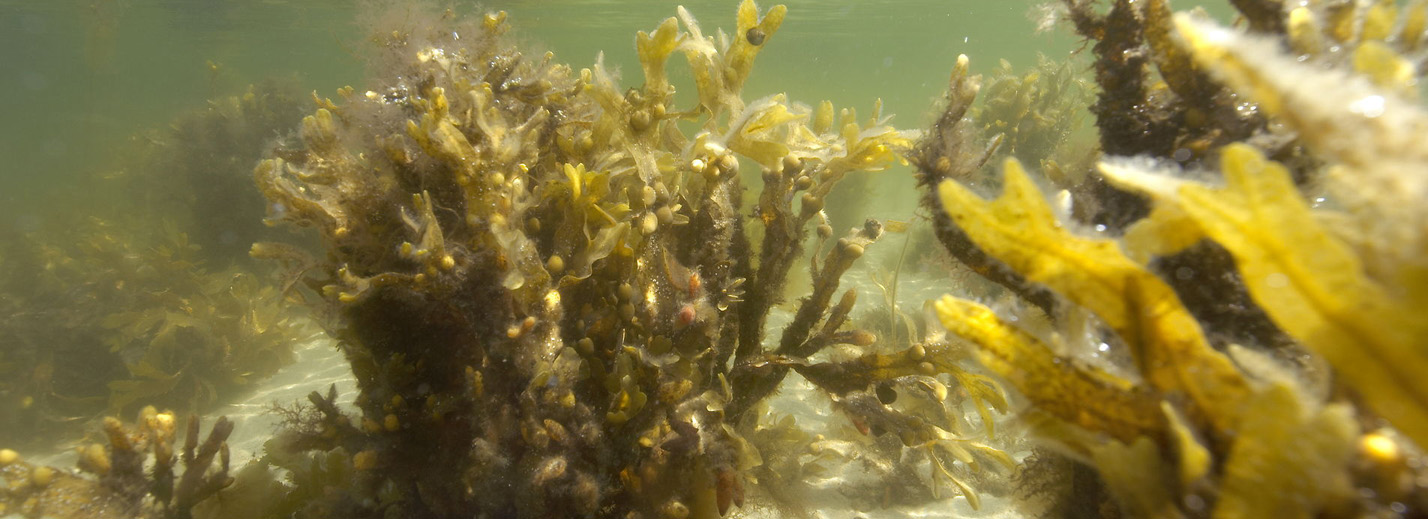
Is fucoidan the new wonder drug?
Researchers have received 17 million DKr to investigate asubstance from brown algae. The researchers will investigate the ability of the drug to strengthen the body and combat aging.
By Birgitte Dalgaard, bird@tek.sdu.dk
Sometimes it's a mistake that causes research to succeed. A researcher was about to add a substance for a research experiment. By mistake she added fucoidan.
The error became a breakthrough. It turned out that the molecule fucoidan, found in brown algae, might be able to stop the development of age-related macular degeneration (AMD). A disease that affects elderly people and can lead to blindness.
– It’s this discovery that forms the basis of our research project. We are now proceeding to investigate the ability of fucoidan to treat AMD and to stop other signs of aging, such as wrinkles. But we also investigate whether fucoidan can make bones heal faster, says Professor Xavier Fretté from SDU Chemical Engineering.
Fucoidan is a molecule found in some brown algae, e.g. it is found in the most common seaweeds around the Danish coasts. The FucoSan - Health from the Sea project is a collaboration between researchers and companies from Denmark and Germany, and the project has received 17 million DKr from EU InterReg-Deutschland-Denmark and the European Fond of Regional development supporting cooperation across EU borders.
The hunt for fucoidan
The research in fucoidan's ability to slow down a number of body degenerations has accelerated in recent years. The Japanese archipelago of Okinawa is known to have the highest concentration of people who become 100 years old. At the same time, the diet is rich in fucoidan from wakame seaweed.
This has made the researchers interested in fucoidan, and in recent years there are several research results that show that the drug in addition to anti-aging effects also has a positive effect on several types of cancer. Fucoidan is currently manufactured industrially in Japan and is used as an additive for food, juices and cosmetics.
But you do not have to travel to Japan to get to the fucoidan. The researchers will go and harvest brown algae, which have a high concentration of fucoidan, in different places in the Baltic Sea.
Search in the Baltic Sea
Professor Xavier Fretté, who has a PhD in marine chemistry and marine pharmacognosy, must undertake a major piece of detective work. With his partners he will find out where the algae with the highest concentration of fucoidan grow and when it is best to harvest the algae.
- The effect of fucoidan varies greatly in relation to where the algae grow geographically and when in the season it is harvested. The effect of fucoidan also depends on the extraction method. Therefore, we have to have many different samples through the laboratory to find out where we find the best brown algae and when in the year they are to be harvested, and how it should be treated, says Xavier Fretté and continues:
"When fucoidan is used in medical and cosmetic products like anti-aging creams, it's important that we control how much effective fucoidan the products contain. Therefore, it is very important that we find a way to handle the concentration and the chemical composition of the active substance.
FACTS:
- Project Name: FucoSan - Health from the Sea
- The two Professors in Orthopedic Surgery Søren Overgaard and Ming Ding from OUH/SDU will investigate how fucoidan can be used to stimulate cell growth in bone healing
- Granted Interreg Grants: 2.225.179 Euro
- Lead partner: Universitätsklinikum Schleswig-Holstein - Campus Kiel
- Project partners from Germany: Christian-Albrecht-Universität zu Kiel,
Coastal Research & Management, oHG , OceanBasis GmbH and
GEOMAR Helmholtz Zentrum für Ozeanforschung - Project partners from Denmark: DTU, SDU and OUH.
Meet the researcher
Xavier Frettè is a Professor at Institute of Chemical Engineering, Biotechnology and Environmental Technology. He researches in the processing of animal and vegetable raw materials for food, feed and pharmaceuticals